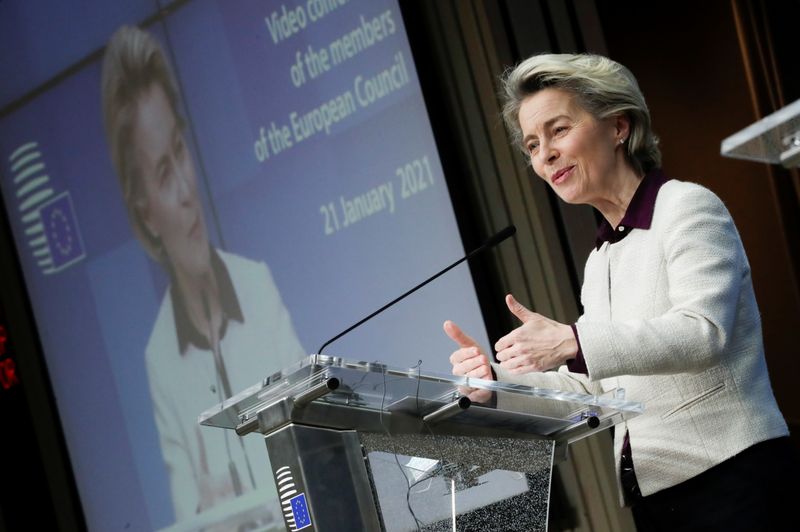BERLIN (Reuters) - The European Union's contract with AstraZeneca (NASDAQ:AZN) for its COVID-19 vaccine contains binding orders, EU Commision head Ursula von der Leyen said on Friday, as the bloc continues to press the drugmaker to deliver supplies as promised.
The EU has been locked in a row with AstraZeneca, which partnered with Britain's Oxford University to develop its vaccine, after the drugmaker said last week it would cut deliveries in the first quarter due to production issues at a Belgian factory.
An EU official said that meant the EU would receive 31 million doses in the period, or 60% less than initially agreed, piling pressure on the 27-country bloc which has lagged vaccination campaigns in Israel, Britain and the United States.
"There are binding orders and the contract is crystal clear," von der Leyen told Deutschlandfunk radio, adding it contained clear delivery amounts for December and the first three quarters of 2021.
"AstraZeneca has also explicitly assured us in this contract that no other obligations would prevent the contract from being fulfilled," she added.
Von der Leyen's comments contradict statements by AstraZeneca Chief Executive Pascal Soriot, who told newspapers on Tuesday the EU contract was based on a "best-effort" clause and did not commit the company to a specific timetable for deliveries.
Soriot has also said the EU was late to strike a supply contract so the company did not have enough time to iron out production problems at a vaccine factory run by a partner in Belgium.
Von der Leyen said the "best-effort" cause was only valid as long as it was not clear whether AstraZeneca could develop a vaccine. She also said there was no "order sequencing" stipulation and that it mentioned four production sites, two of which are in Britain.
The EU wants to make a redacted version of the contract public later on Friday, she said.

The EU contract with AstraZeneca is an advance purchase agreement for the supply of at least 300 million doses provided the vaccine is approved as safe and effective, with doses delivered in stages. It is expected to be approved by the European Medicines Agency (EMA) on Friday.